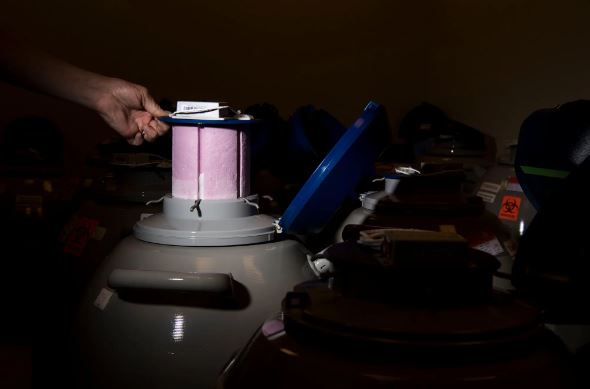In a recent ruling that reverberated through the fertility industry, the Alabama Supreme Court declared that embryos destroyed at an Alabama clinic should be considered children under state law. The decision stemmed from lawsuits filed by three families whose embryos were inadvertently destroyed at the clinic, sparking urgent discussions about the regulation and ethical implications of fertility treatments.
The incident at the Alabama clinic, where a patient accessed a storage room, removed embryos from a tank of liquid nitrogen, and dropped them on the floor, highlights a broader pattern of errors occurring in fertility treatment facilities across the country. From 2009 to 2019, more than 130 lawsuits were filed over destroyed embryos, exposing lapses in safety protocols and raising concerns about the lack of government oversight in the rapidly growing fertility industry.
This ruling comes at a time when the anti-abortion movement seeks to extend legal recognition, or “personhood,” to embryos conceived through in vitro fertilization (IVF), presenting a complex legal and ethical landscape for fertility clinics and patients alike. With the judiciary increasingly open to considering the idea of personhood for embryos, cases involving fertility treatment errors take on new significance, potentially shaping the future of reproductive rights and regulations.
While patients often resort to legal action when fertility treatment goes awry, the Alabama lawsuits took a distinct approach, arguing that the destruction of embryos amounted to wrongful deaths under state law. The state Supreme Court’s decision to allow wrongful death claims on behalf of embryos underscores the evolving legal framework surrounding reproductive technologies and highlights the profound implications for patients and clinics.
Experts caution that incidents like the one in Alabama underscore the need for stricter regulations and oversight in the fertility industry, where errors can have devastating consequences for patients emotionally, physically, and financially. The lack of standardized safety protocols and consistent monitoring in fertility clinics contributes to the frequency of errors, creating vulnerabilities for patients and embryos alike.
Despite advancements in reproductive technologies and an increasing demand for fertility treatments, clinics often operate with lax safeguards, exposing patients to unnecessary risks. The magnitude of negligence cases, such as the failures of embryo freezer tanks in California and Ohio, underscores the systemic challenges within the fertility industry and the urgent need for reform.
The Alabama ruling has broader implications for fertility providers nationwide, prompting concerns about liability and accountability in an industry where errors can have profound and far-reaching consequences. As clinics grapple with the fallout from the ruling, patients and providers alike confront critical questions about the future of fertility treatment and the ethical considerations surrounding reproductive technologies.
In response to the heightened scrutiny, some healthcare systems, like the University of Alabama at Birmingham, have opted to pause certain fertility treatments while evaluating the potential legal and ethical ramifications. This decision reflects the complex intersection of law, ethics, and healthcare policy in the realm of reproductive medicine, underscoring the need for comprehensive regulations and oversight to protect the interests of patients and embryos alike.
Moving forward, stakeholders in the fertility industry must prioritize patient safety and ethical considerations while navigating the evolving legal landscape surrounding reproductive rights and responsibilities. The Alabama ruling serves as a catalyst for broader discussions about the regulation and oversight of fertility treatments, highlighting the urgent need for comprehensive reforms to safeguard patients and embryos in an increasingly complex and contentious landscape.

